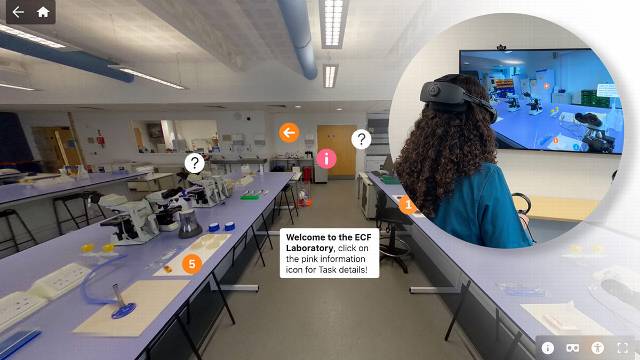
When we last spoke to Aimee, she had just begun work on her HRP project. Now, as our final years submit their last few assignments, we caught up again to find out how things have been for Aimee during her last year as an undergraduate with Harper Adams.
“When we last spoke,” Aimee commented. “I was beginning my garden surveys and planning out what I wanted to do for the remainder of my project.
“My project came in three stages: surveying slug populations within gardens; testing radio frequency identification (RFID) tagging as a means of tracking slug movement in the laboratory; and recording tracking the movement of RFID tagged slugs within garden habitats. I surveyed three gardens within the Shropshire area, recording all species of slugs in the garden. I also noted their location, which takes a very long time! I’ve been doing this since October, steadily collating data.
“I had started lab trials, taking the most commonly found species and testing which ones could withstand and tolerate RFID tagging without this affecting their survival and feeding. As you can imagine, there was quite a lot going on, but now being unable to access campus labs, I’ve had to take a slightly different approach.
“The original plan was for me to have three rounds of testing the RFID tag in the laboratory and then to complete a months’ worth of tracking using the RFID technology within all three of the gardens. Unfortunately, this plan was not possible once the restrictions on non-essential travel came into place.
“Instead, I managed to complete one study of the RFID tagging tolerance before the laboratory shut. Then, rather than tracking the movement of slugs over the course of a month, I completed 24 hours of intensive tracking within my own back garden - one of the three original gardens surveyed - in order to comply with Covid rules!”
You can see Aimee tracking this progress via her social media round-up here.
As a result, Aimee’s project has changed slightly, with a greater focus on slug abundance and distribution – which is still an understudied subject despite the importance of slugs within domestic gardens. Due to these changes, there is scope now for future work developing longer-term RFID tracking of slugs within gardens.
So why slugs? Aimee’s interest in one of the top three British garden pests came from a desire to understand. She shared: “Slugs are a problem - we can’t deny that some species of slug are a big garden pest. But, it’s a lack of understanding on a basic level about their behaviour that causes them to be more of a nuisance than they really are.
“Slugs are difficult to track and so I’m hoping that my study will help to start to understand how slugs move within a domestic garden and which habitats, or even which garden plants, they prefer.”
Aimee sees great potential in her study for the future. She explained: “Tracking like this has not been done before in domestic gardens and there are lots of research questions that could asked in the future; but we have to start from somewhere with a basic understanding of slug biology. While tagging slugs like this does require specialist tools, the equipment is available at Harper, so this is a study that another student or even myself could develop further in the future.”
Looking back on her journey to higher education, Aimee took a slightly different path but could not have asked for a better outcome. She said: “When I applied to uni, I wanted to study speech and language therapy; but my gut feeling was that it just wasn’t the right course for me. All my offers had come back but I declined them all.
“Looking back to what I was really passionate about, I always knew I wanted to be outside, and I wanted to make a difference environmentally. I didn’t realise I could make a career from that until I moved to the countryside. I knew I only had one shot having already been through the UCAS application stages. When I came to Harper on an open day, I just knew I didn’t want to look anywhere else. That’s how I came here to study wildlife; it was the best decision I’ve ever made, really!”
Having not looked back, Aimee has loved her time at Harper, through all the ups and downs. “I’ve definitely enjoyed the uni experience,” she commented. “I’ve learnt, if you’re passionate, there’s a career that means you can work in something you love every day. It’s easy to fall into the trap of the obvious and clear path to a job. But with an environmental degree, because it’s so broad, there are endless opportunities with great progression if you seek it out. Don’t second guess yourself! I didn’t and I don’t regret it.”
Are you a final year student? What’s been your favourite Harper moment? Get in touch and tell us your story here.
 Blog: Veterinary Medicine students step into immersive 360° laboratory
At Harper & Keele Veterinary School, students are stepping beyond the traditional microbiology bench and into an immersive 360° labo …
Posted
Yesterday
Blog: Veterinary Medicine students step into immersive 360° laboratory
At Harper & Keele Veterinary School, students are stepping beyond the traditional microbiology bench and into an immersive 360° labo …
Posted
Yesterday





